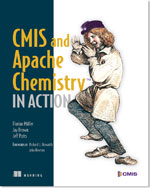Unless one of your New Year’s resolutions was to engage in a complete media blackout, you’ve undoubtedly heard the news that John Powell, Alfresco co-founder and CEO, has replaced himself with Doug Dennerline. Here are some of the places the news was covered:
- Top Brit Penguins spurn London Stock Exchange for NYSE, The Register
- Spotlight: Alfresco names new CEO, FierceContentManagement
- Alfresco taps former SuccessFactors president for CEO role, Silicon Valley Business Journal
- Europe Not in Same League as New York for Tech IPOs, Wall Street Journal
- Alfresco Aims for IPO, Replaces CEO Powell with Valley Vet Dennerline, Sees Future in Cloud, CMSWire
- Alfresco bags respected new CEO, preps IPO, Computer Business Review
- Alfresco appoints new chief executive to lead IPO in US, TechWorld
John Powell has made public statements about a future IPO previously, but this is more than a comment during a keynote, this is a serious step toward that milestone.
Most of the coverage has either been about Alfresco’s decision to come to the US for what it sees as a market better-suited to tech offerings or about Doug’s extensive Software-as-a-Service (SaaS) experience and what that means for Alfresco’s continued expansion into the cloud. I (perhaps mistakenly) always assumed Alfresco would go public in the US market. And, although Doug’s experience will definitely be a huge asset as we push further into the cloud, the idea that we see our future in the cloud isn’t a lightning bolt either. Instead, my biggest takeaway from the news is what a class act John Powell is. It takes a real leader to objectively stand back, take an assessment of what is needed to achieve a particular goal, and then execute on that, even if it means taking yourself out of the role (especially when the company is doing well).
I definitely admire what John has done for Alfresco and I’ve enjoyed working with him–luckily, he’ll be keeping his board seat, so no sloppy goodbye is necessary.
By the way, if you are going to be in the San Francisco Bay Area on January 30, the Bay Area Alfresco User Group is meeting that night and both Doug and I are planning on attending. You should come to the meetup, welcome Doug to the Alfresco community, and share your Alfresco story.

 I’ve been working on another book project along with Jay Brown from IBM and Florian Mueller from SAP. It’s called “
I’ve been working on another book project along with Jay Brown from IBM and Florian Mueller from SAP. It’s called “